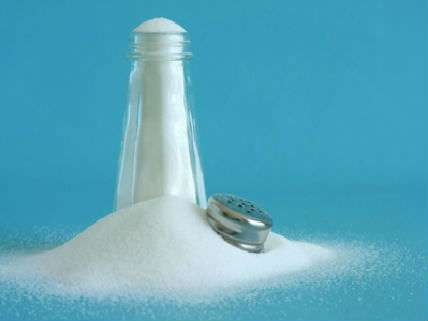Salt Is Not the Killer the Government Says It Is

The Centers for Disease Control and Prevention recommend…
…that everyone age 2 and up should consume less than 2,300 milligrams (mg) of sodium each day. Some groups of people should further limit sodium intake to 1,500 mg per day, including:
- Adults age 51 or older.
- All African Americans.
- Anyone who has high blood pressure, diabetes, or chronic kidney disease.
As it happens, 2,300 milligrams of sodium comes to just over the amount found in a teaspoon-full of salt (sodium chloride) per day.
A new study in JAMA Internal Medicine is adding to the evidence the CDC's sodium advice is basically a superstition, that is to say, a belief or practice resulting from ignorance, fear of the unknown, trust in magic or chance, or a false conception of causation. In this case, the CDC and lots of physicians are buying into what has turned out to be a false conception of causation.
The new study followed 2642 older adults (age range, 71-80 years) participating in a community-based, prospective cohort study for ten years. The researchers analyzed the sodium intake of participants looking at three groups: those who consumed less than 1,500 milligrams per day; other who ate 1,500 milligrams to 2,300 milligrams per day; and those pigged out on more than 2,300 milligrams per day. What did they find?
In older adults, food frequency questionnaire–assessed sodium intake was not associated with 10-year mortality, incident CVD [cardiovascular disease], or incident HF [heart failure], and consuming greater than 2300 mg/d of sodium was associated with nonsignificantly higher mortality in adjusted models.
Cardiology Today noted:
At 10 years, mortality rates were lower in those with sodium intake 1,500 mg/day to 2,300 mg/day (30.7%) compared with those with sodium intake less than 1,500 mg/day (33.8%) and those receiving more than 2,300 mg/day of sodium (35.2%), but the difference was not statistically significant, according to the researchers.
This new report bolsters the findings in a New England Journal of Medicine study from last August that found that people who consume less 1,500 milligrams of sodium (about 3/4ths of a teaspoon of salt) are more likely to die than people who eat between 3,000 to 6,000 milligrams of sodium per day (1.5 and 3 teaspoons of salt).
To be sure, some people are more sensitive to sodium, but that is no reason for all of us to endure bland foods.
Disclosure: My blood pressure was 105/80 when my physician checked it most recently.


Show Comments (38)